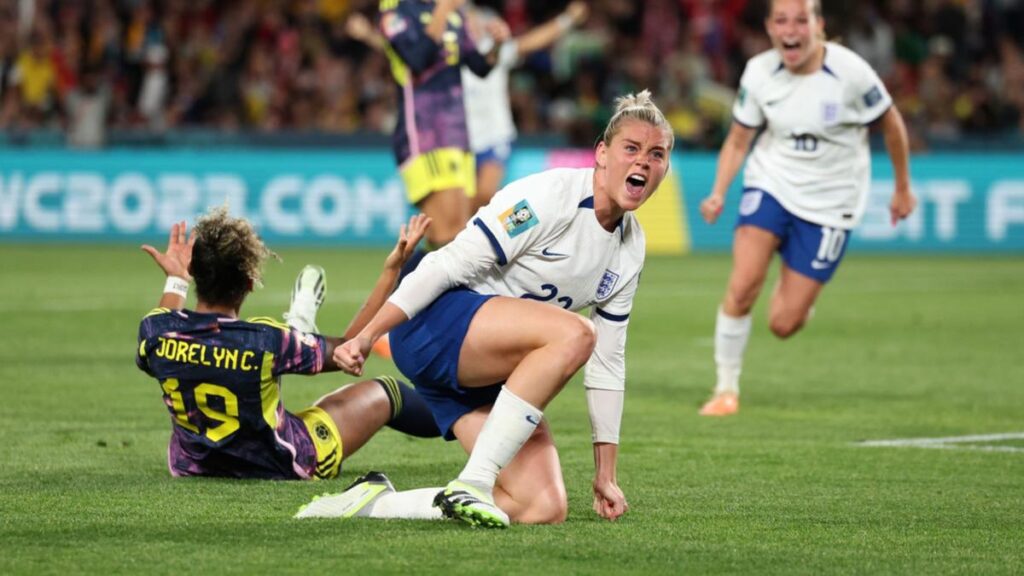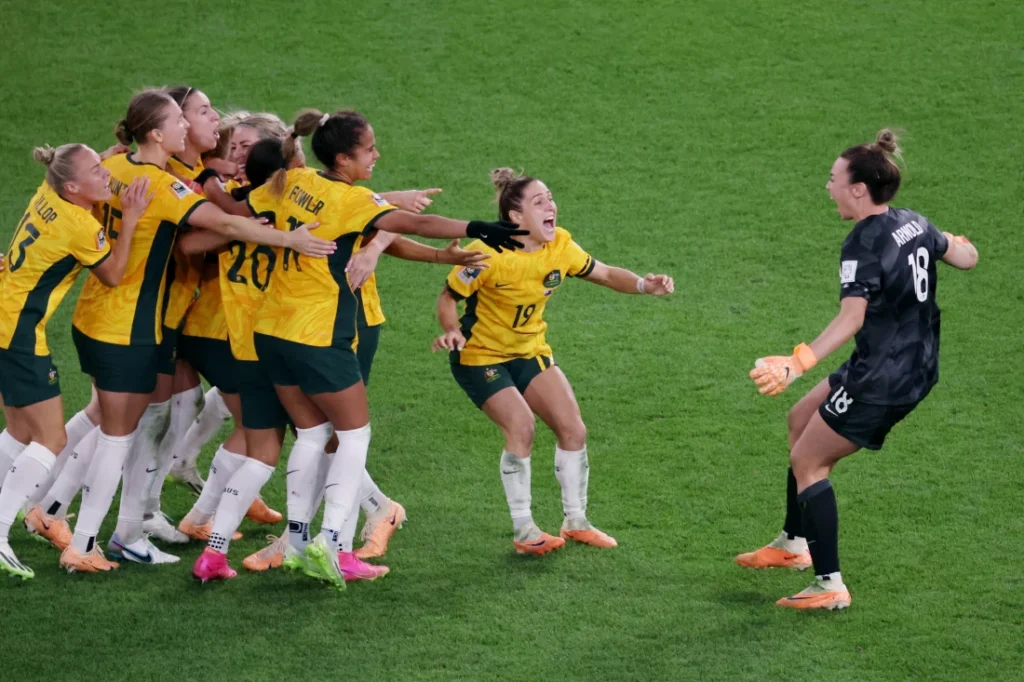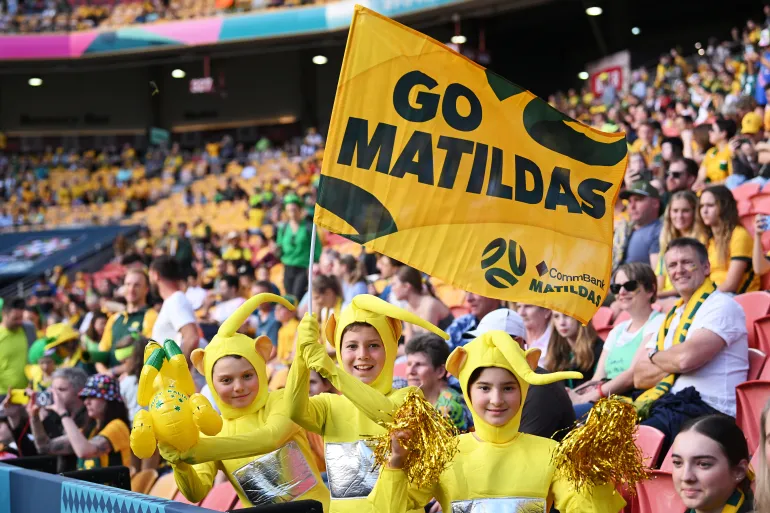A month ago, a 24-year-old had never watched a sports match or heard of the Matildas team. But now, she’s completely immersed in football.
She said, “I’m now one of the many new followers of the Matildas on Instagram. I’ve been watching a lot of their videos on YouTube, I even learned the offside rule, and I’ve been dreaming about their penalty shots.”
“I’m wondering why I’ve become so obsessed. It’s like I’ve gone to another level.”
This same kind of story is happening all over the country. From small pubs in the countryside to big stadiums in the city, everyone is catching Matildas fever.
Getting a seat for the semi-final against England has been really hard, almost like getting a special ticket to a popular concert like Taylor Swift’s.
In Sydney, you can’t go anywhere without seeing things related to the team. There are huge posters on tall buildings, billboards with players’ names, and fans wearing green and gold colors.
The game against France on Saturday was the most-watched sports event on TV in Australia for at least ten years, with about 4.17 million people watching on average. After the game, a lot of highlights were all over social media.

Many people are hoping that the Matildas’ sudden popularity and the excitement around the World Cup will make a big difference for women’s football in Australia.
Don’t give up’ Not too far in the past, the team played in stadiums without any people watching.
In 2014, one of the really good women’s teams, Brazil, came to Brisbane to play against the Matildas in two friendly matches.
The first game had less than 2,600 seats filled, so the Football Federation of Australia had to not open the stadium for the second game. This was because it cost too much to run a stadium with no people in it.
In the beginning, players spread fliers and called TV stations to get attention for their games. During the 2003 World Cup in the US, no reporters showed up for the Matildas’ press conference at the airport. However, since then, the team has worked hard for recognition, fairness, and visibility, and it’s paying off.
In this tournament, every Matildas match has been sold out, with many more fans watching online or at local places. The team’s uniforms are selling quickly, and there’s talk of a national holiday if they win the World Cup.

Their success on the field is only part of the story. The Matildas are making history. Australia loves sports, especially football, and no national team has ever gone this far in the World Cup.
The men’s team, the Socceroos, did well but never reached this level. The Matildas usually stopped around the quarterfinals. Their determination in tough times is what people love about them.
Their motto is “never say die,” and that’s seen in how they play and what they’ve achieved, like equal pay deals. This attitude matches the country’s love for underdog stories.
Facing England, a big rival, in the World Cup semifinals is making everyone excited and anxious.
Ms. Wilson is waiting anxiously for the semi-final against the Lionesses. She feels really stressed and super excited. It’s a very intense experience.
No matter what happens on Wednesday, Football Australia claims that the Matildas have ignited a significant movement.
Sarah Walsh, who used to play as a forward for the Matildas from 2004 to 2012 and now leads women’s football at the association, is amazed by the immense interest surrounding our sport at this moment.
She believes that this World Cup will be the turning point from people saying “hardly anyone watches” to asking “who’s supporting?”

With her experience as a former player, Ms. Walsh intends to use the success of the tournament to elevate the sport’s status.
Her goal is to make big changes that will help girls and women have better opportunities in the game. This means addressing the existing gaps and creating a fairer playing field.
Matildas coach Tony Gustavsson thinks his team has already broken down cultural barriers. He said, “This team has the potential to make history in many ways, not only by winning.” He mentioned how they can inspire the next generation, bring the nation together, and leave a lasting impact beyond just a 90-minute football match. He strongly believes in them for these reasons.
Ms. Wilson’s story proves that. When she was young, she didn’t feel included in sports, but now she feels part of that world. Watching these women athletes on TV makes her want to be strong and fast like them.
Most importantly, she’s proud. She even bought a newspaper with the Matildas’ photo on the front to show her support. It might sound a bit crazy, but that’s how proud she is.

